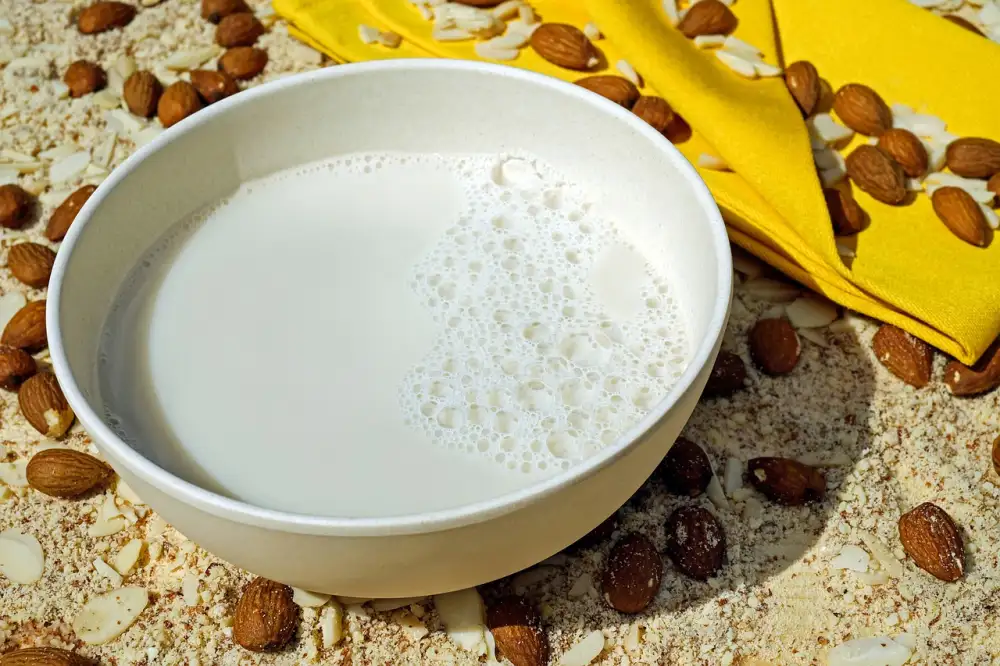Unveiling the Truth: Does Almond Milk Go Bad? Your Guide to the Shelf Life and Spoilage Signs

Almond milk has gained popularity as a dairy-free alternative, loved by many for its creamy texture and nutty flavor. But just like any other perishable food item, almond milk also has a limited shelf life. In this article, we will delve into the factors that affect the shelf life of almond milk and provide you with essential information to ensure you enjoy it at its freshest. So let's uncover the truth about almond milk and its longevity in your refrigerator.
Understanding the Expiration Date of Almond Milk
When it comes to almond milk, understanding the expiration date is crucial in ensuring its freshness and safety. The expiration date printed on the packaging indicates the estimated time until the product is at its best quality. However, it's important to note that this date is not an exact science and can vary depending on various factors.
Typically, unopened almond milk can last up to a week past its printed expiration date if stored properly. This means keeping it refrigerated at all times and away from direct sunlight or heat sources. It's essential to check for any signs of spoilage before consuming, even if it's within the stated expiration period.
It's worth mentioning that once almond milk is opened, its shelf life significantly decreases. Generally, opened almond milk should be consumed within 7-10 days for optimal taste and quality. However, always rely on your senses to determine if it has gone bad.
Remember, the expiration date serves as a guideline rather than an absolute indicator of spoilage. Trust your judgment and pay attention to any changes in smell, texture, or taste.
Signs of Spoilage in Almond Milk
While almond milk does have a longer shelf life compared to dairy milk, it is still important to be aware of signs of spoilage. Here are some indicators that your almond milk may have gone bad:
1. Foul odor: If your almond milk has a sour or unpleasant smell, it is likely spoiled. Fresh almond milk should have a mild, nutty aroma.
2. Chunky texture: When almond milk goes bad, it may develop lumps or curdles. If you notice any clumps or an uneven texture, it's best to discard it.
3. Off taste: Spoiled almond milk will have a noticeably different taste from fresh almond milk. It may taste sour, bitter, or rancid.
4. Mold growth: Visible mold growth is a clear sign that your almond milk has spoiled. Discard the entire container if you see any mold.
It's important to note that these signs can vary depending on the brand and type of almond milk. Always check the expiration date and trust your senses when determining if the almond milk is safe to consume.
Proper Storage Tips for Extending the Shelf Life of Almond Milk
Proper storage is essential for extending the shelf life of almond milk. Here are some tips to keep your almond milk fresh and safe for longer:
1. Refrigeration: Almond milk should always be stored in the refrigerator, even before opening. The cold temperature helps slow down the growth of bacteria and preserves its freshness.
2. Sealed Container: Once opened, transfer the almond milk into a sealed container. This prevents any contamination and helps maintain its quality.
3. Avoid Temperature Fluctuations: Keep the almond milk away from temperature fluctuations, such as placing it near the refrigerator door or on top of the stove. These changes in temperature can lead to spoilage.
4. Use Clean Utensils: Always use clean utensils when handling almond milk to prevent introducing any bacteria or contaminants.
5. Check for Signs of Spoilage: Regularly check for signs of spoilage, such as a sour smell, curdling, or clumps forming in the liquid. If you notice any of these signs, discard the almond milk immediately.
By following these proper storage tips, you can extend the shelf life of your almond milk and enjoy it fresh and safe for a longer period.
In conclusion, enjoying fresh and safe almond milk is all about understanding its shelf life and spoilage signs. While almond milk does have an expiration date, it is important to note that it can still be consumed safely after this date if stored properly and shows no signs of spoilage. By keeping an eye out for changes in smell, taste, texture, and appearance, you can ensure that your almond milk remains fresh. Additionally, following proper storage tips such as refrigerating it at all times and using a clean utensil to pour can help extend its shelf life. So go ahead and indulge in the creamy goodness of almond milk, knowing that you are savoring it at its best!
Published: 10. 12. 2023
Category: Health



